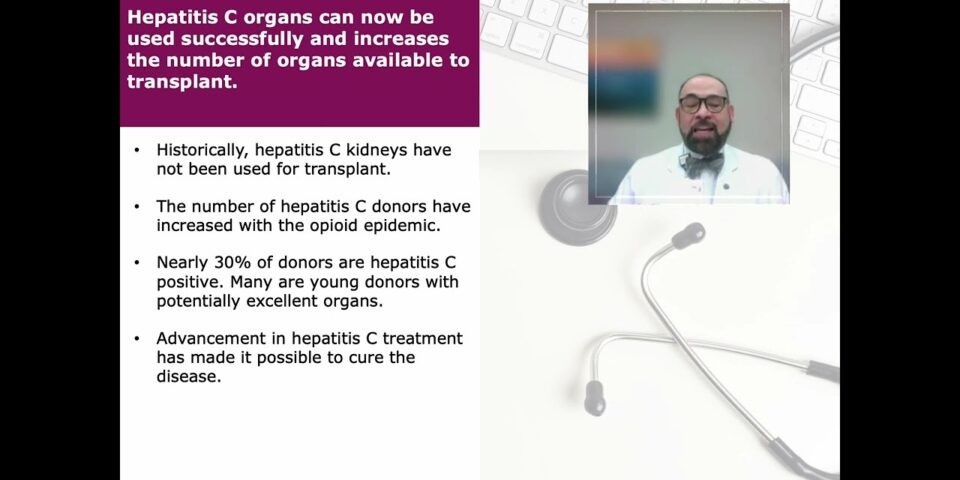What you need to know about hepatitis C positive organ transplant
Hepatitis C, a liver disease that often results from the sharing of needles or exposure to infected blood, can be a short illness or become a long-term disease with serious complications. Historically, those with the disease were not allowed when it came to organ donations, as there was concern about transmitting the disease to the organ recipient.
However, current medical standards have begun to change, and those changes could result in more people being given a second chance at life.
In this short video, which you can watch in the time it takes to finish your morning coffee, nephrologist Carlos F. Zayas, MD, explained what you need to know about hepatitis C positive organ transplant.
“About 120,000 Americans are currently waiting for the gift of a renal transplant,” said Dr. Zayas. “Unfortunately, the number of people willing to donate from living donation or to offer kidneys from deceased donors remained stagnant over the last two decades.”
The use of organs from Hepatitis C positive individuals is one way to make more potentially life-saving transplant surgeries available.
Rates of Hepatitis C infection have spiked since 2014, in large part as a result of the ongoing opioid epidemic. Dr. Zayas noted that as much as 30% of current organ donations are coming from Hepatitis C positive patients whose organs are otherwise healthy.
“Thanks to advancements in treatment, it’s become possible for us to provide organ transplants using organs from Hepatitis C positive patients,” said Dr. Zayas.
While rooted in the tragedy of the opioid epidemic, these organ transplants offer the gift of life to patients on transplant waiting lists.
Learn more about living donation and organ transplants right here on Flourish.
Get your transplant questions answered
Learn more about Prisma Health’s Transplant Center, located in upstate South Carolina.
Learn More About Transplant Services

